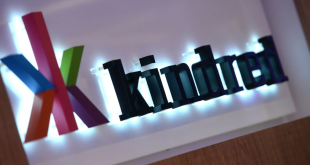The intersection between sports betting and sports media is a space and talking point not many industry stakeholders are unfamiliar with. Erik Backlund, Kindred Group Chief Product Officer, offered an operator’s perspective into this area ahead of the SBC Summit Barcelona.
For Kindred, Backlund explained, a redefining of the group’s outlook and operational scope has been essential to ensuring its brands stand out against other agile competitors – the focal point of this strategic change being a shift away from a betting-oriented approach to an entertainment-oriented one.
Can you provide us with an overview of how Kindred is making use of the convergence between betting and sports media/entertainment?
In today’s digital age, content plays a crucial role in attracting and engaging customers. Kindred put a lot of focus on strategically aligning betting with sports media and entertainment content to cater to our diverse customer base while navigating regulatory constraints and embracing content personalization for enhanced user experiences.
Operating in diverse local markets, we must understand the importance of tailoring content to suit specific player behaviours and preferences, considering factors like localization and hyper-localization; a player in the UK for example, does not play the same as a player in Romania.
So, we have adapted strategies in various regions, including partnerships with sports leagues like Allsvenskan & Superettan in Sweden, along with recent deals in Eredivisie in the Netherlands. Additionally, Kindred produces social media and YouTube shows in countries like Australia, Belgium, France, and the Netherlands.
Another example is TVCs and content featuring chess champion Magnus Carlsen to support our global sponsorship of him. We explore opportunities to showcase our offerings through TV visible LED boarding around football pitches in prominent leagues like the Premier League in the UK and LaLiga in Spain. Additionally, our BetShare functionality allows customers to share bets through social media channels, fostering discussion and engagement.
However, content creation comes with its challenges, such as standing out from competitors and mainstream content creators, adhering to marketing restrictions imposed by regulations (which is getting more and more complex), and efficiently processing and utilising data.
To remain competitive, Kindred has been shifting away from the traditional betting operator model, moving towards becoming an entertainment company. We recognize the importance of offering a differentiated product and providing personalised experiences throughout the customer journey, from sign-up to rewards to event viewing and bet building and offering relevant casino games just to mention some areas.
With the prevalence of smartphones and always-on entertainment, we emphasise the need to focus on enhancing our apps and native experience.
In an era of information overload, capturing the audience’s attention requires creating exciting and action-driven content. However, the rising costs of acquiring rights and data present challenges that require careful decision-making.
From Kindred’s position as an international operator, have you observed some markets as embracing the betting/media convergence more than others?
Absolutely, as an international operator, Kindred has observed varying degrees of market embrace across different countries with local regulations playing a crucial role in shaping the landscape. Some markets have already begun implementing restrictions on marketing and specific sponsorships, such as Belgium and the Netherlands.
Another significant factor is the accessibility of events through television or streaming platforms and how we strategically adapt to this. In certain markets, streaming Premier League or top league football is a straightforward process, whereas in others, it can be prohibitively expensive.
The UK stands out as a market that is significantly advanced in terms of its structure and overall acceptance of betting brands. On the other hand, countries like Belgium and the Netherlands have shown more pushback and negativity towards the convergence.
But we have to embrace the difference and work with the regulators to come up with solutions and a model that works for both, and most importantly allows the customers to be in a regulated environment, playing with serious operators who provide them with the tools and support needed for a safe gambling experience.
Which betting products stand to benefit the most from these innovations and changing trends and why?
Those that focus on personalised experiences, real-time engagement, and value-added content. It is amazing to see how fast the video clips of big jackpot wins in casino spread through social media platform sharing.
If we look at personalization features, statistical and visualisation services and notifications, they are often still rather generic by nature. However, we can take a huge leap forward using AI and machine learning. By efficiently processing and servicing data to players, these products can offer recommendations that are tailored extremely specifically rather than to a broader traditional segment.
Similarly real-time statistics can adapt to preferential betting interest combined with visualisations that can become more and more adaptive and notifications which adapt to alert specific customer behaviours.
The evolution of social betting products will be intriguing to watch. Betting has traditionally been a personal activity, but with changing trends, it remains to be seen if social elements will transform the way people bet.
The innovations will predominantly fuel combo/bet builder types of betting, enabling users to create custom bets based on personalised data and insights. This can lead to the growth of bigger platforms who can cater more efficiently to individual preferences and those who invest in the technology to enable and support the change.
There is of course a much bigger opportunity to promote bets like player props and bet builders, as you can connect the content to big player profiles and push them as part of the sell/share/discussion.
Leveraging the expertise in gaming and extensive media coverage in esports, platforms can offer live streams, in-game statistics, and analysis from gaming influencers. Established platforms like Twitch seem well-positioned for this evolution, however latency issues needed it to be optimised for it to be betting enabled.
By utilising technological advancements from the gaming industry, virtual sports betting can create hyper-realistic experiences that blur the line between virtual and real sports events. This integration may become more seamless, especially with the rise of platforms like Meta and the virtual world.
What changes in consumer behaviour and preferences should sportsbooks be most aware of when it comes to product development?
Viewers are increasingly exposed to comprehensive data during sports broadcasts, becoming more familiar with key metrics and complexities of data calculation. Sportsbooks should leverage this trend by including relevant data baked into their offerings and presenting in a digestible, easy to understand format. By providing deeper insights, customers can make more informed bets and feel more engaged in the sporting action. Offering pre-match and live content, along with comprehensive tracking of bets, is vital to keep customers informed and engaged throughout their betting journey.
The trend of betting small to win big continues to grow, and this can be leveraged through product development that allows for bets that are more informed and offer enticing opportunities.
As mentioned before, personalization through data remains a significant opportunity with betbuilder momentum increasing this demand for tailored experiences with custom made bets. This demand is likely to extend beyond football and the main leagues with this experience more and more expected as a constant regardless of the sport or match level.
With our in-house proprietary Sportsbook, the KSP, Kindred is utilising AI and machine learning throughout the product development for these more tailored betting experiences.
Consumers now expect personalised experiences, just as they encounter on other platforms and apps, especially on social media (where targeted adverts and recommendations are commonplace). By using AI algorithms, Kindred can provide beyond tailored betting recommendations to entire betting experiences based on each user’s past bets, preferences, and activity frequency, leading to greater satisfaction and overall customer experience.
How can betting interact and leverage the sport media and entertainment sectors whilst meeting responsible and safer gambling standards?
Prioritising responsible gaming, betting companies can further strengthen their responsible gambling tools to ensure player well-being. Kindred, for instance, has set an ambition to work towards 0% revenue from harmful gambling, taking a leadership role in the industry.
Betting companies can tap into the existing betting-related dialogue used in sports media broadcasts, like mentioning ‘the line’ or ‘money line’ in US sports, or “WinViz” the win predictor tool used in Cricket in UK and align their key markets and betting opportunities with the most talked-about and predicted events in sports. This can be done whilst simultaneously utilising it as a platform to educate on safe betting, staking plans and self-help tools. The two can coexist to create a place of informative data, odds communication and betting education.
Looking again at Twitch it is also “self-regulating” as it continues to strengthen its own gambling related marketing rules through expanding prohibited lists of unlicensed operators. This protects the community where gambling viewership dropped by 75% due to the expulsion of such content. As a licensed operator, Kindred are keen to engage with all sectors to ensure a safe betting experience.
Building trust is also paramount in all interactions with players and potential players, and betting companies can go above and beyond by fostering trust through partnerships that support charitable causes and give back to communities. At Kindred we have done so through our sponsorship with football clubs in England and throughout our local league and team sponsorships in Europe, Australia, and North America.
Authorities are becoming increasingly concerned about betting’s visibility. Could this negatively impact the convergence between the sector and sports media?
Striking the right balance is crucial, as a complete ban could lead to the emergence of black markets. The focus should be on keeping customers in safe and regulated environments to ensure responsible betting practices.
Horse Racing is of course synonymous with betting and there is no reason why this approach could not be extended across other sports and media segments whilst cultivating a responsible gambling message, as opposed to the approach we see in some jurisdictions of heavy restriction of betting communication in any format which will have a negative impact on convergence. Kindred sees all these industries can benefit from a more informed and transparent approach to betting.
Which of these topics do you think will define the debate at Barcelona?
AI and machine learning and how it will apply to personalization and product differentiation as we have seen executed so well in social media and streaming platforms. Of course, betting is far more complex and there is a huge responsible, safe gambling element to consider, but that is also something that AI and machine learning can counterbalance with early detection systems monitoring problem behaviour whilst still optimising the platform for customer experience.









